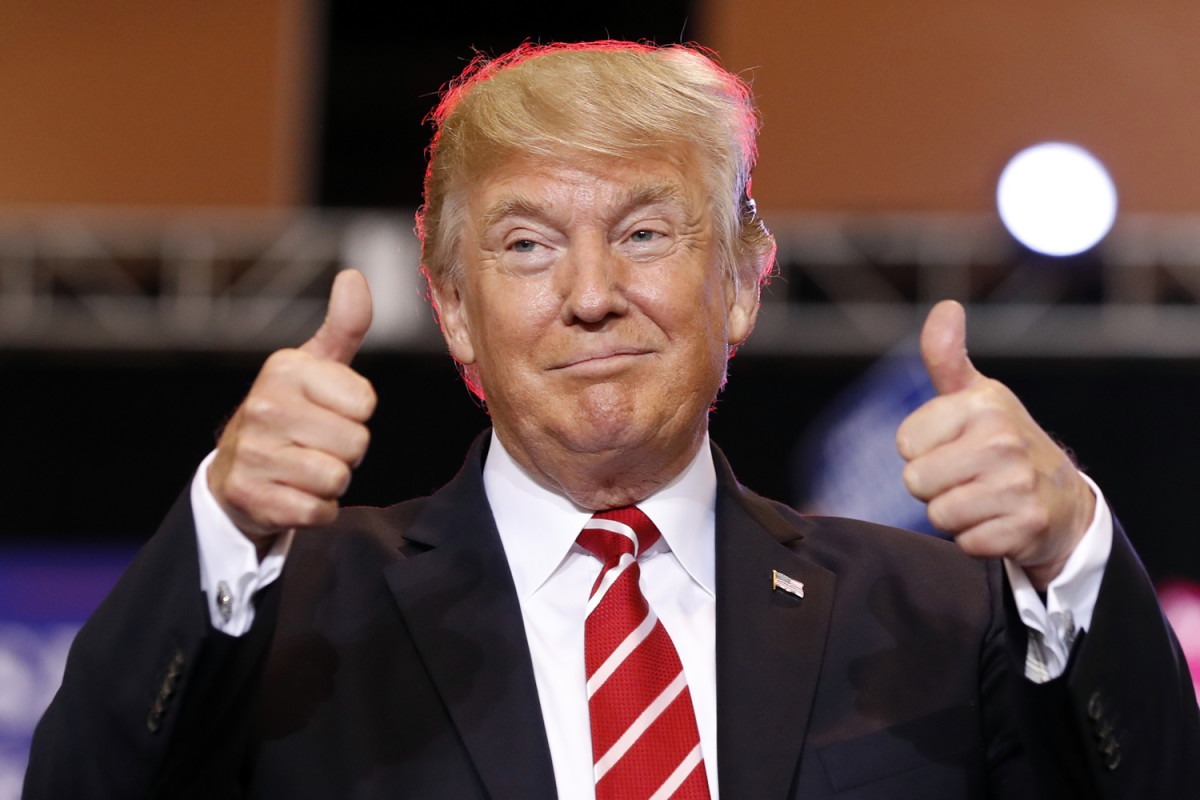Why President Trump Has Always Been Wrong About Trade Deficits Being Bad
What is a Trade Deficit?
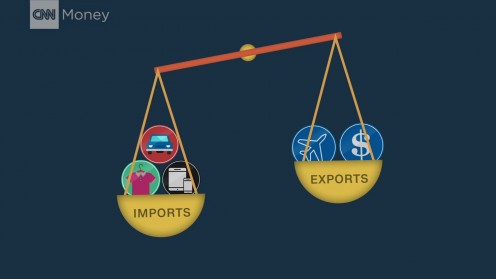
What is a Trade Deficit
A trade deficit is when a country buys more goods and services outside its borders than it sells. For example, assume American's buy $100 billion worth of cars from Japan while Japan buys $50 billion worth of soy beans from American farmers. Then America experiences a $50 billion trade "deficit" while Japan has a $50 billion trade "surplus".
It is no more a difficult concept than that.
Net Trade from 1960 - 2016
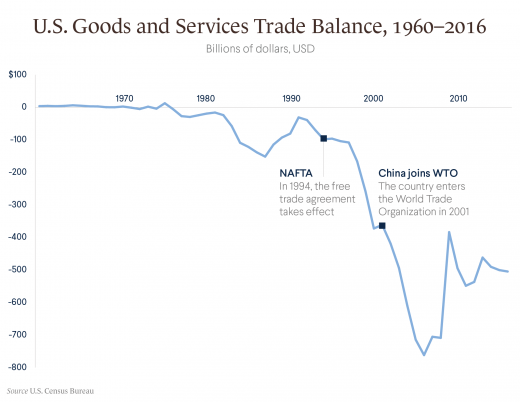
The above chart gives a long-term picture of America's net trade with the rest of the world. It has almost always been negative, but was nearly in balance from 1960 until 1981, with the Reagan administration. The deficit then grew throughout the Reagan era until it approached parity again near the beginning of the Clinton administration. Balanced trade was short-lived for beginning in 1993 and until 2006 the economy boomed, more or less, yet the deficit rapidly increased again. This is counter-intuitive from a Trump perspective.
The trade deficit kept growing until the Great Recession of 2008 where America stopped buying - period. Once the recovery took hold and America started buying again, the trade deficit began to increase once more, but not to the previous pre-recession levels. Under the Obama administration it remained relatively constant and only began getting bigger with the Trump presidency.
Why Does President Trump Say a Trade Deficit is Bad?
Answer - Because 1) he doesn't understand economics, 2) he thinks from his gut and not his head (he admits this), and 3) what he says what he thinks he needs to sell to his political base. One should note that his former economic adviser Gary Cohn and his current one, Larry Kudrow, disagree with him.
When Can a Trade Deficit Be Bad?
Answer - When you aren't America or a handful of other highly industrialized nations and your economy goes South. I will get into more boring detail in a bit.
But in normal circumstances having a trade deficit or surplus is neither good nor bad in the larger scheme of things. It is simply a fact of international trade life. Supply and Demand, in a free market, says who will be net importers and who will be net exporters. It is only when someone tries to screw with the free market, like with tariffs, does the applecart get upset and people get hurt.
Why Does America Have A Trade Deficit?
Answer - Because we are rich and want lots of cheap stuff. For example, clothes in America cost a lot while clothes in China cost a lot less, even when adding in trans-Pacific shipping costs. So where would you, as an American buy most of your clothes? From China, of course and voila, instant trade deficit 1.
Accounting for Trade
Let me introduce two economic terms that describe how nations account for international trade and finance. The first is called the Current Account which records the inflow and outflow of goods, services, investment incomes and transfer payments (international aid). The second is called the Capital and Financial Account which records ownership of fixed assets and financial instruments which Americans own of foreign countries or vice-versa. Together, these two accounts make up a country's Balance of Payments.
There is an economic truism about the relationship between the Current Account and the Capital/Financial Accounts and that is they must equal each other in the mid to long-term. It is this fact that makes trade deficits neither good or bad and why President Trump is very wrong about making trade deficits the bogeyman.
An Example of a Trade Deficit
Before exploring that a bit further, let me offer this as a precursor.
American clothes are expensive to ones made in China; that is just a fact of life and different standards of living. So why would Americans buy domestically produced cloths? We won't and we didn't once cheaper Chinese (and many other country's cloths became available). The downside to this, of course, is that the American textile industry went down the tubes and lots of American jobs were lost (in the textile industry) as a result. But you know what China wants to buy from the U.S.? Semiconductors. So while jobs are being lost in the (lower paying) textile industry, jobs are being created in the (higher paying) semiconductor industry 2.
Then what determines if there is a trade surplus or deficit? Whether the value of clothes we buy from China exceeds or is less than the value of the semiconductors China buys from us. Whether one is greater than the other has no moral (good or bad) value associated with it; it just is what it is.
But Buying and Selling Goods and Services Isn't All There is to International Trade
OK, back to the Current Account (CA) and Capital/Financial Account (CFA) and Basic Cash Flow
Implied in the above example is that cash is flowing back and forth between America and China. When we buy clothes from China two things happen: 1) clothes are sent from China to America and 2) Cash is sent from America to China. The reverse is true for semiconductors.
Suppose for the moment that we send more cash to China than China sends to America (which is the case today). It stands to reason, part of that excess cash China has is used to buy semiconductors. It is also a fact that, because America is a safe bet, additional amounts of that excess cash returns to America in the form of investments, either in purchasing American debt or directly from American companies.
In mathematical terms what I just said was, world-wide, CA = CFA. Let's take our $50 billion trade deficit from the previous example and assume it is the aggregate trade imbalance from all countries America trades with. That means CA = $50 billion. In other words, a net $50 billion dollars flowed out of America due to the trade deficit.
BUT, because CA = CFA, that means sooner or later, $50 billion dollars worth of investment will flow into the United States. What does that mean? It means that as the trade deficit grows larger, then more and more money is being invested back into America to help it grow. So long as America has a need for that foreign investment, everything remains in balance because on a world scale, the economy is closed (meaning we aren't trading with beings from Mars). There is a fixed amount of capital in the short to medium term which makes international trade a zero-sum game.
What If Things Change?
What happens if our trade deficit decreases to zero. All that means is for America to continue growing, about 100% of investment must come from domestic sources. And where does that money come from? Simply put, even though it is not that simple, since Americans and American institutions aren't spending the money overseas, they now have it to spend domestically.
Continue the thought a little further and suppose America is running a trade surplus. In this case, investment in America still comes mostly from domestic sources there will nevertheless be a surplus of money. Since money sitting idle is a waste, it will be invested overseas.
It is the above three paragraphs that Trump and his supporters clearly don't understand. Otherwise, trying to reduce trade deficits, especially using tariffs, is an economic loser.
1 Another, eh hmm, more esoteric reason is because Americans don't save very much domestically relative to domestic investment (yes, they are connected).
2 And that is the fallacy to the arguments made by Donald Trump and most of the Democrats. They both claim NAFTA cost America jobs. But the truth is, in aggregate, America gained jobs because of NAFTA. Yes, the auto sector lost jobs from the effect of NAFTA BUT many other sectors gained more jobs to offset that loss (and that is the problem with anecdotal evidence, it is just that anecdotal and misses the whole picture). Further, NAFTA wasn't the main cause for auto job loss. Instead, it was changing demand and American automakers not keeping up AND technology!
What If Things Go Very Wrong?
Answer: If you are America, (or another wealthy country), not much - relatively speaking.
Consider the Great Recession of 2008. The fact that America had a large trade deficit in 2007 meant nothing, relative to the recession itself. All that happened is it decreased (CA) when we stopped buying and foreign entities stopped investing (CFA) in America; in roughly equal but opposite amounts. Things more or less happened as theory would have it even as bad as the recession was.
But what if you weren't America, but a much poorer country who had expanded during the boom times. To make a clear cut example, assume your country is a tourist-based nation who prospered enormously during the good times. Lots of excess cash flowing around in the local economy led to lots of buying from foreign sources and therefore a hefty trade deficit.
But remember what I said about CA and CFA. As the locals were buying overseas, foreign entities were buying local debt in order to invest in the country. And this is where size matters.
When economies head South, foreign investors stop investing. That, in and of itself isn't the problem; it just means the locals stopped buying foreign stuff. It is the huge debt that was built up during the good times that is the problem.
If you are America, nobody is worried about us paying off our debts (unless we don't periodically raise the debt ceiling). But the same is not true if you are an economically weak country. In bad times, in addition to outside investment drying up, those investors want their money back when it comes due and as countries like Argentina, Venezuela, and Ecuador have found out, they can't pay it and go bankrupt, or something like it.
This wouldn't have happened if these countries had run surpluses. It wasn't the deficit itself that was the problem, it was the other side of the coin (investment) resulting from the deficit that is potentially the problem for economically poor nations.
Why Does President Trump Say Trade Deficits Cost American Jobs?
Answer - I don't know why he says it, because, as I pointed out earlier, it isn't true in the aggregate. Nor do they create jobs either. Everything else being equal, the forces of global supply and demand determine the number of jobs there are and where they are located.
I put a finer point on it, yes, by reducing America's trade deficit with other nations certain sectors of the American economy MAY an increase jobs, but at what cost? It is a given that other sectors (in NAFTA's case, agriculture) will lose jobs, lots of them. When NAFTA came into effect there was a hue and cry, mainly by Democrats, that American jobs were flowing out of the country to the North and South at alarming numbers. What was unsaid, of course, is there were huge numbers of jobs flowing into America as a result of NAFTA as well. The best tally to-date is that more jobs were created in America than lost because of NAFTA. The purpose of NAFTA, of course, was to maximize trade between Mexico, Canada, and the United States in the aggregate. All three nations had winners and losers but when the dust settled, each nation was better off economically than before.
So what happens to jobs if Trump pulls America out of NAFTA? Everybody loses overall. While yes, automakers may see an increase in domestic auto sales and more people will be employed as a result, more people will lose their jobs because Mexico and Canada will find other sources of supply. Further, everybody will be paying higher prices for the commodities and services NAFTA covered.
In terms of jobs, it would seem American farmers would be the hardest hit as Mexico makes agreements with countries in South America because now American produce is too expensive to buy.
Answer: Again, I don't know. History clearly reveals that tariffs are almost universally bad. They make things more expensive overall and they cost jobs (because of retaliation) in the long run. They always have and they always will.
Based on his statements, Trump seems to think that 1) other nations have restrictions from buying American goods, thereby suppressing job creation in America and 2) by forcing Americans to buy more American goods, more jobs would be created. As one would think, there is more to the story than these simple thoughts.
Tariffs Are the Same as Rent Control
Tariffs, like rent controls, put obstacles in the way of a free market. It disrupts the forces that drive normal supply and demand by putting floors or ceilings on what things cost (and price) instead of letting the market determine them. When there is no bilateral or multilateral trade agreements between nations, tariffs are common as they protect internal production. They are much less common when trade agreements exist because that is one of the purposes of such agreements - free flow of trade. That isn't to say they don't exist - they do - but they are normally set so as to not seriously impact trade.
An example is Japan. It is commonly thought that Japan restricts US car imports via a heavy tariff. But that is not true, they do not have a tariff on US cars (but America does on Japanese car imports). So why don't American automakers sell lots of cars in Japan? It is because their is little demand, they have plenty of their own cars.
Another example is South Korea. Currently, autos shipped to South Korea from the US must meet Korean safety standards, which are more strict than what America requires. US auto makers say this puts them at a terrible disadvantage and Donald Trump agrees. So as one of the "concessions" South Korea made in renegotiating the previous "terrible" trade deal is to allow America to import up to 50,000 of our less safe cars before having to meet Korean standards. Trump is happy and Korea is happy because the US has never imported that many cars to South Korea anyway. Nor is it likely to because South Koreans, like their Japanese neighbors, don't particularly care for our product.
So far, President Trump as not negotiated any new bilateral trade pacts that have significantly improved America's position because the previous ones worked fine. In other words, the new agreements do little to change the trade deficit dynamics from what they were to start with.
But if he insists on continuing with punishing nations for perceived, but imaginary, problems, they will be forced to retaliate. The outcome will certainly not be to America's advantage.
Was This Discussion Helpful to Your Understanding of the Trade Issue?
Was This Discussion Helpful to Your Understanding of the Trade Issue?
© 2018 Scott Belford


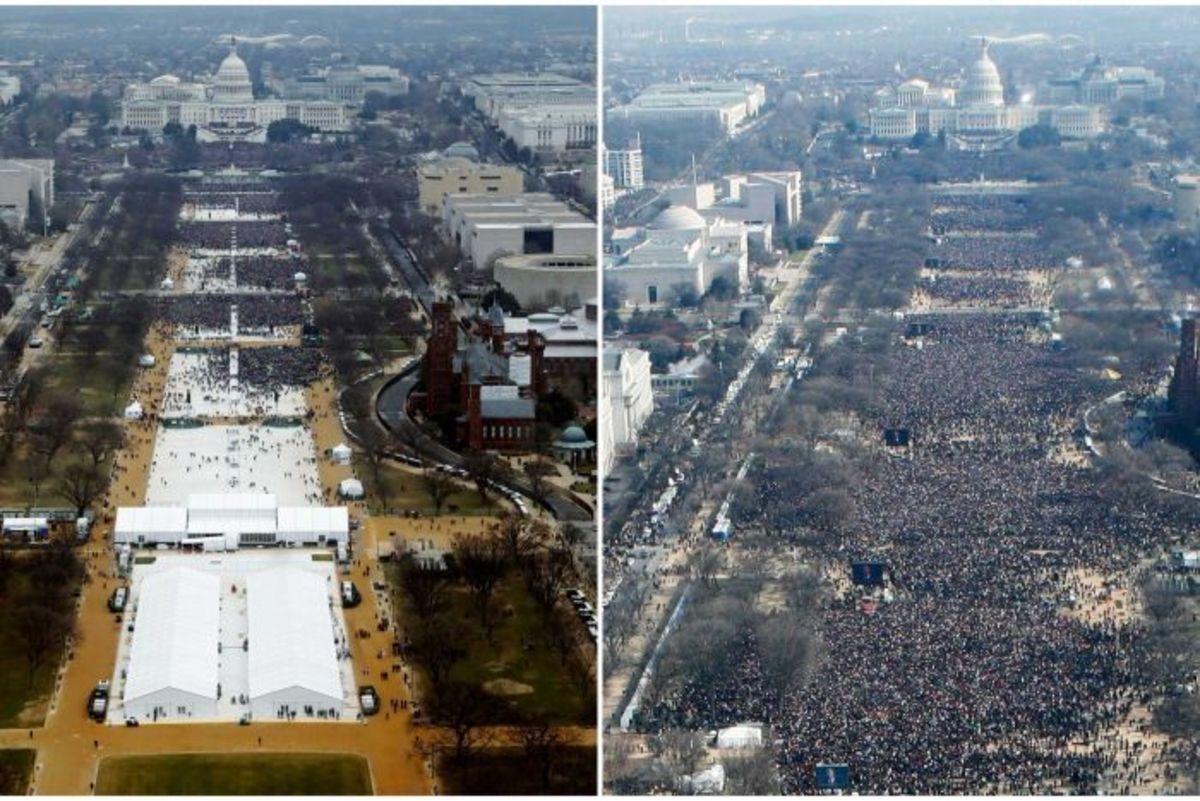
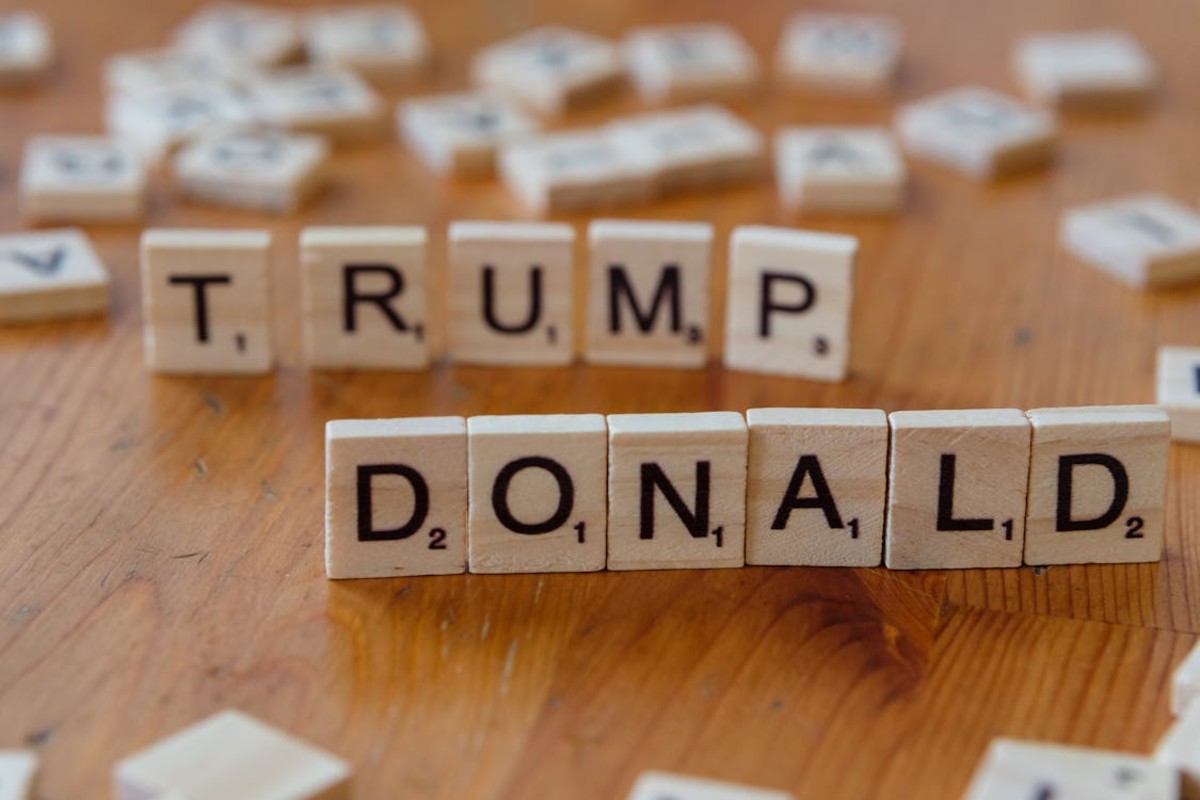
![A Compilation of President Trump's Lies, Hyperbole, and Misdirection [updated 12/14/2018]](https://usercontent1.hubstatic.com/13749352_f120.jpg)
